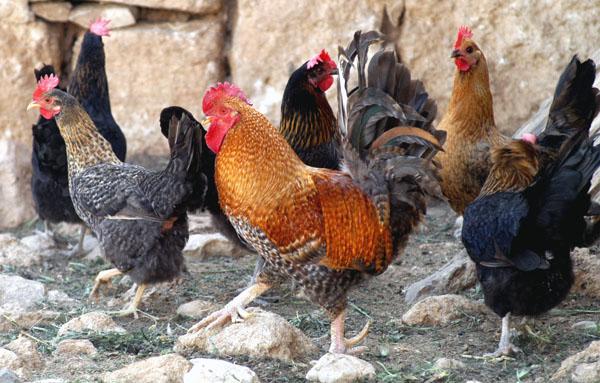You are here
‘Migratory birds being tested for avian influenza’
By Hana Namrouqa - Feb 01,2015 - Last updated at Feb 01,2015

AMMAN — The Agriculture Ministry and the Royal Society for the Conservation of Nature (RSCN) are testing migratory birds for the avian influenza (AI) virus, a government official said on Sunday.
In addition, the ministry is inspecting poultry farms across the Kingdom to ensure they are free from bird flu after the disease resurfaced in neighbouring countries, Agriculture Ministry Spokesperson Nimer Haddadin told The Jordan Times.
“Jordan is free from bird flu, but after the discovery of new cases in two neighbouring countries, authorities are taking extra precautionary measures to make sure the poultry sector stays safe,” Haddadin said.
A woman infected with bird flu died last month in Egypt, raising the number of bird flu-related fatalities in the North African country to nine since the beginning of the year, according to news websites, which also reported that Israel has culled over 20,000 turkeys during the past month as some were infected with the disease.
Since the outbreaks in Egypt and Israel, Jordan heightened its inspection measures at border crossings, according to Haddadin, who noted that any bird entering the country must have a certificate showing it is free from disease.
Bird flu is an infectious viral disease of birds (especially wild water fowl such as ducks and geese), often causing no apparent signs of illness, according to the World Health Organisation (WHO).
AI viruses can sometimes spread to domestic poultry and cause large-scale outbreaks of serious diseases.
Some of these AI viruses have also been reported to cross the species barrier and cause disease or subclinical infections in humans and other mammals, according to the WHO website.
Most AI viruses do not infect humans; however, some, such as A (H5N1) and A (H7N9), have caused serious infections in people, the organisation said.
According to Abdul Shakour Jamjoum, president of the Jordanian Poultry Producers Union, poultry farms across the Kingdom always implement strict precautionary measures to prevent an outbreak.
“The farms constantly sanitise their premises and keep their birds in good health condition; we have very good management,” Jamjoum told The Jordan Times.
Moreover, managers of poultry farms always keep the land surrounding them dry to avoid attracting migratory birds.
Birds are normally attracted to the reflection of water in mudflats across the country, where they stop over to rest, according to the RSCN.
Jamjoum added that workers at poultry farms also prevent migratory birds from entering poultry production centres and cages.
The Kingdom’s unique location along one of the world’s most important bird migration routes makes its nature reserves a vital habitat for many migrating birds, according to the RSCN.
The Rift Valley-Red Sea route is the world’s second most-used flyway, with more than 1.5 million birds crossing it during the spring and autumn migration seasons.
Migratory birds in the southern hemisphere use the route to return to Europe and the northern hemisphere in the spring.
On the way, they stop over in places like the Jordan Valley to rest and drink water.
Related Articles
The Ministry of Agriculture on Tuesday suspended the import of pet birds from Nigeria, where cases of bird flu have been reported, according to a government official.
AMMAN — Jordan on Tuesday banned the import of frozen poultry and pet birds from Israel, India and five European countries, following the ou
AMMAN — The government has banned the import of frozen poultry from France, where bird flu cases were reported, an official said on Tuesday.
















